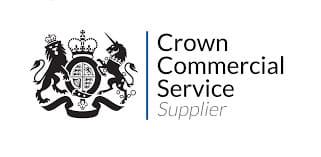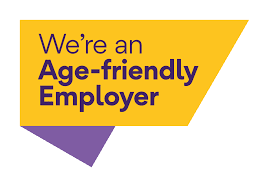#InterimsInAction -Michelle Anderson, an Interim Chief Marketing Officer and seasoned Marketing Consultant
In the second installment of this series, Jason Atkinson, Managing Director of Russam, continues his discussions with leading interim professionals. He delves further into their strategies for making rapid impacts, explores their perspectives on cutting-edge innovations, and investigates their methods for delivering substantial value, ensuring return on investment (ROI), and leaving a lasting legacy.
In this episode, Jason engages in conversation with Michelle Anderson, an Interim Chief Marketing Officer and seasoned Marketing Consultant. Michelle brings with her a wealth of experience in commercial creativity, bolstered by her academic achievements including an MSc and CIM qualifications. Currently, she is serving in an interim capacity, offering her expertise to businesses in need of strategic marketing guidance. View her current placement #GreatHires.
Transitioning seamlessly between interim and permanent Chief Marketing Officer (CMO) roles—does it come easy? Is this becoming a trend in leadership roles within the industry? And does the ‘interim’ label truly matter?
For me, the principles remain consistent regardless of the role’s nature. Upon joining a company, be it interim or permanent, my focus is on swiftly grasping its nuances, aligning with its language, and initiating value addition. In both interim and perm, this means connecting with my team and key colleagues, getting clarity from my manager on their priorities and starting to form and test out hypotheses about how I can make things better. With perm roles, you can feel like you have the luxury of time, but working interim sharpens me up so I stay focused and that can only help me when I switch back to perm roles.
Is this shift towards blending interim and permanent roles a growing trend in the leadership landscape?
Some of my peers are reluctant to move from perm to interim because they want more security and of course, we all have bills to pay, or they only explore it when perm roles are hard to come by. My experience is that security in permanent roles is a myth – I’ve been through enough restructures and redundancy exercises to know how quickly that perceived job security can disappear. So, fewer people consider it, but more should!
Does the term ‘interim’ hold significance?
It does make a difference when you’re working an interim contract, and because of this, I tend to be very clear and make my interim status explicit, with suppliers for example. If you’re working on a fixed term project, it will affect the decisions you can make or the projects that it makes sense for you to start or pursue as no one wants to leave something in an untidy state. With colleagues and team, I think the tag has less effect after the first few days or weeks, as I will always try to integrate and tackle the interim role with at least as much commitment and focus as I would a permanent job. When interviewing and moving between interim and perm I’ve only ever experienced my interim work being seen as a positive.
What are the big ticket items and trends in your world as a marketing leader?
Digital Transformation comes up regularly. Efficiency of marketing channels and improving ROI. Loyalty and retention. Customer data. Pricing strategy and whether to discount. What’s the role of organic social? Everyone’s talking about AI but I’m not yet seeing it impacting in any meaningful way.
Does hybrid working “work”, or must you be present fully to be fully effective as an Interim?
I think hybrid works but my caveat would be that you probably need to be as present as your team or your key colleagues and stakeholders to build rapport and trust and to be able to collaborate effectively. So, if they’re hybrid in the office 2 days a week then so am I. I’ve done fully remote and for me it just doesn’t work.
Is sectoral transition feasible for interim marketing professionals?
I believe moving sectors as a marketing professional is not only possible but desirable. The core principles we work from transfer easily and bringing knowledge and best practice from one industry to another can be immensely valuable. I’ve personally had loads of experience going into industries I know little to nothing about – from rugby league to horse racing to football. In every example I’ve entered a business full of experts in that industry, so I have an enormous knowledge resource available to me. I do however have a clear thread running through all the roles I’ve held over the last 10+ years, which is that they’ve all been B2C, multi-site commercial businesses, and I think having that niche helps. The main challenge is in persuading a recruiter to go off-industry when they may have a raft of candidates to choose from with industry experience. In interim I think there’s more openness to considering left-of-field candidates; it’s probably seen as a lower risk than a perm hire.
Can you develop people as an Interim leader even if you are just in place for say 6 months?
Absolutely, but it’s crucial to also manage expectations about how far someone will change or develop in that period. All my roles, interim and perm, have had leading a team as a key focus and it’s one of my favourite parts of my work. Every interaction with team members is an opportunity to aid someone’s development – whether in formal structured reviews, weekly check-ins, 121s or in the way you give feedback, as long as that person wants to develop and grow. As a mentor I’ve also seen how much impact giving someone your undivided attention and focus can have on their development, even if that’s just spending an hour together once a fortnight.
What is the single most important thing to do when you enter a company as an Interim Manager?
The cardinal rule upon assuming an interim managerial role? Have a plan. Whatever the reason you’re being brought into a business there will be very specific things needed from you. That could be holding the fort, or it could be driving a major strategic change. Understand what those things are and be very clear about how you’ll keep enough of your focus on delivering them. I have a list on my desk currently of the 7 most important focuses in my current interim role and each day I make sure I’m dedicating enough of my time to progressing these.
As the landscape of interim management evolves, does its future appear bright or uncertain?
Uncertainty in the wider job market is a blessing for interim. I’m hearing lots of tales of indecisive recruiters and lengthy perm processes which stall at the end. While there’s nervousness in many businesses, they still need to get things done and an interim can give them breathing space to work out where to go next or to test a role out.
Why an Interim career?
There’s an honesty in the interim relationship which I find refreshing. Not every role needs doing forever so for everyone to be clear at the start about how long we think we’ll work together (with room to revisit this if things change) feels like a more adult conversation than that around a ‘permanent’ role which is anything but. In terms of ways of working, I enjoy the challenge of learning enough about a new business or industry, at a pace, to contribute meaningfully and add value, while not getting dragged into time-wasting activities.
Finally, doing interim work has undoubtedly aided my progress into more senior roles through the sheer variety of projects I’ve led and the challenges I’ve taken on.

Contact us
Call us on 07930 356305 or email HQ@russam.co.uk








